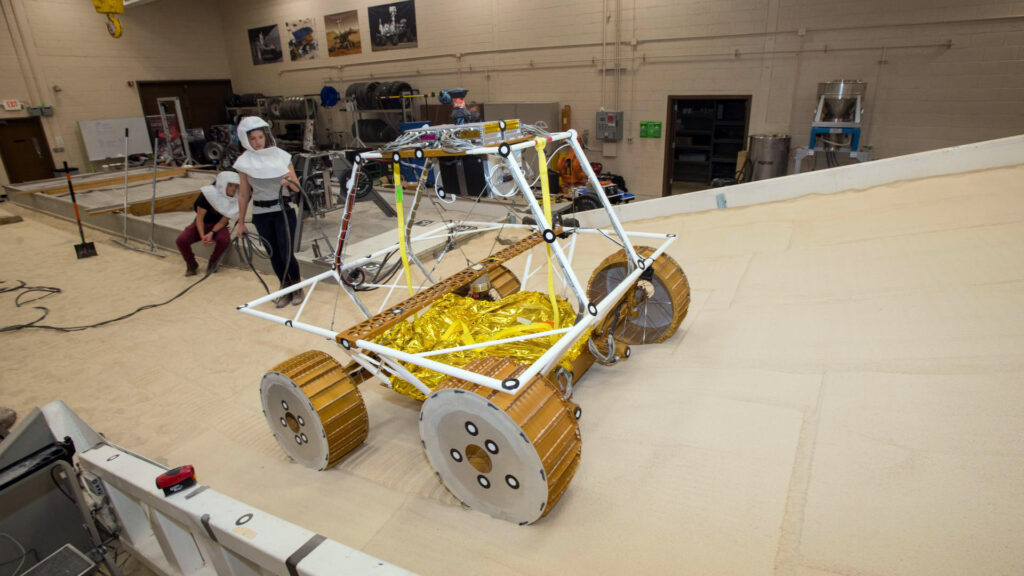NASA is looking for a private buyer to take over the project but the buyer will have to perform the original scientific mission
October 3, 2024 at 12:30

- NASA’s Viper Rover project budget has skyrocketed from $250 million to $433 million.
- The buyer will need to complete NASA’s original mission and drill for ice on the Moon’s surface.
- At least 11 companies have submitted proposals to take over the Viper project.
NASA is seeking to sell a rover it has been developing for several years, with reports estimating the total project cost at a staggering $433 million. While the exact asking price for this nearly completed rover remains a closely guarded secret, the space agency has already captured the attention of private buyers eager to snag a piece of lunar exploration for themselves.
The rover, known as the Volatiles Investigating Polar Exploration Rover or Viper for short, was designed to search for ice at the Moon’s south pole. It is equipped with a drill capable of digging up to one meter into the lunar surface in regions where temperatures never exceed -160°C. NASA had contracted SpaceX to transport Viper to the Moon using the Falcon Heavy rocket, with a custom lander built by Pennsylvania-based Astrobotic.
Read: Moon Buggy Race! Top 3 Vie For NASA’s $4.6 Billion Lunar Rover Contract
NASA believes that if it can extract ice from the Moon’s surface, it could use this to split off hydrogen atoms to make rocket fuel. This could allow the Moon to become a refueling stop for craft venturing deeper into space. Initially, NASA had a budget of $250 million for the project, but that’s already ballooned to $433 million, which is more than the agency can afford.

It is now looking to sell the craft to a commercial company. As part of a sale, the buyer would need to pay for final tests of the Viper, work out its way to transport the rover to the Moon and perform NASA’s original scientific mission. The new owner will also need to share its findings with NASA. According to the Economist, eleven companies have submitted proposals and are interested in taking over the project.
By canceling the project, NASA could save approximately $84 million, but the decision requires approval from Congress. A spokesperson for the House Science, Space, and Technology Committee has raised “concerns” about how canceling Viper might affect the U.S.’s competitive position with China, which is also exploring the possibility of finding ice at the Moon’s south pole.
#Sale #NASA #Moon #Rover #Owner


